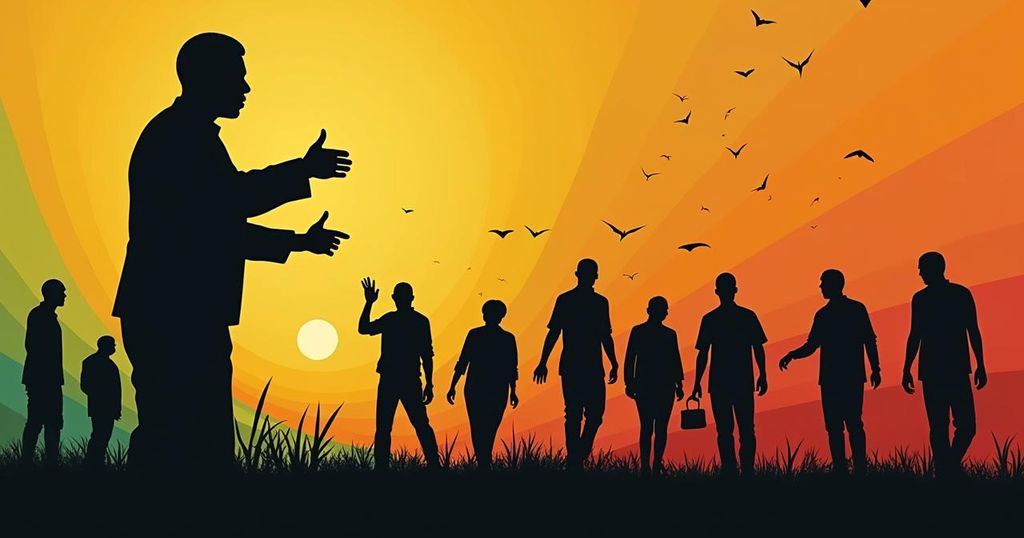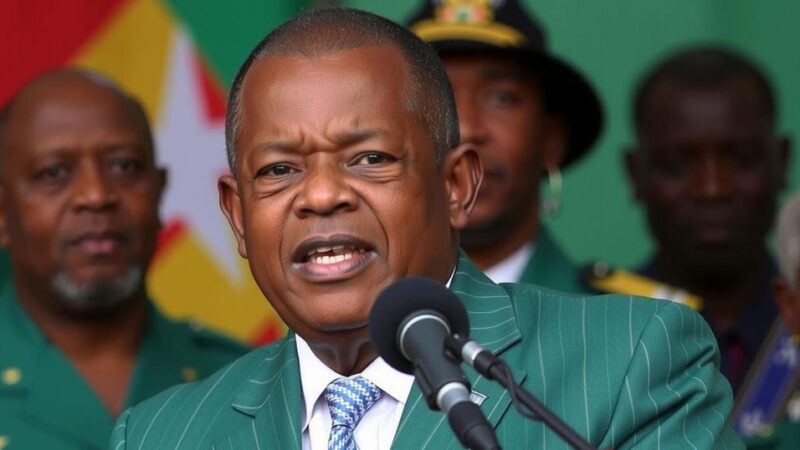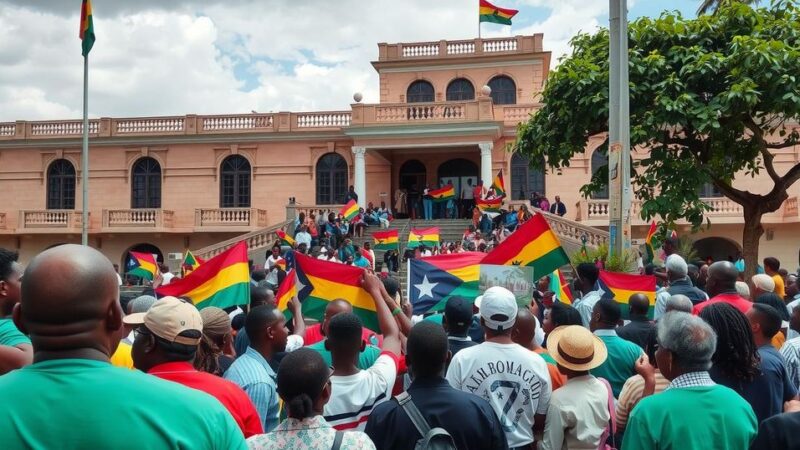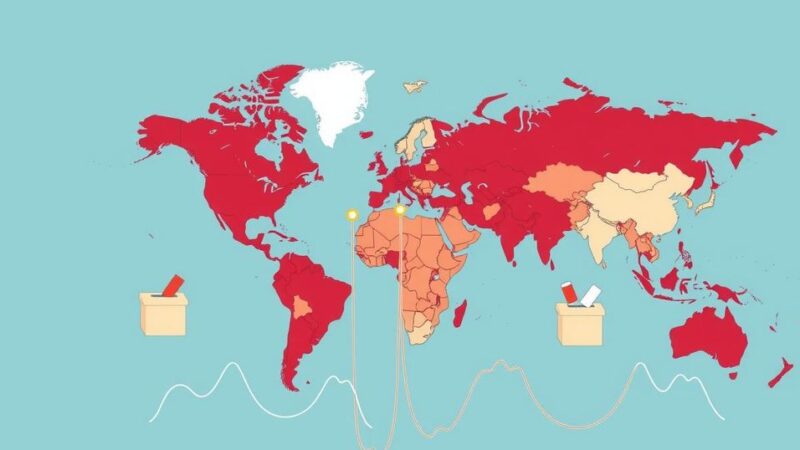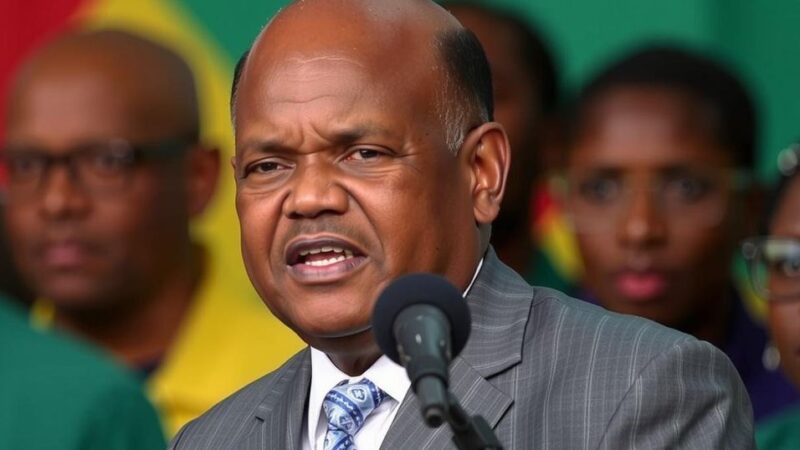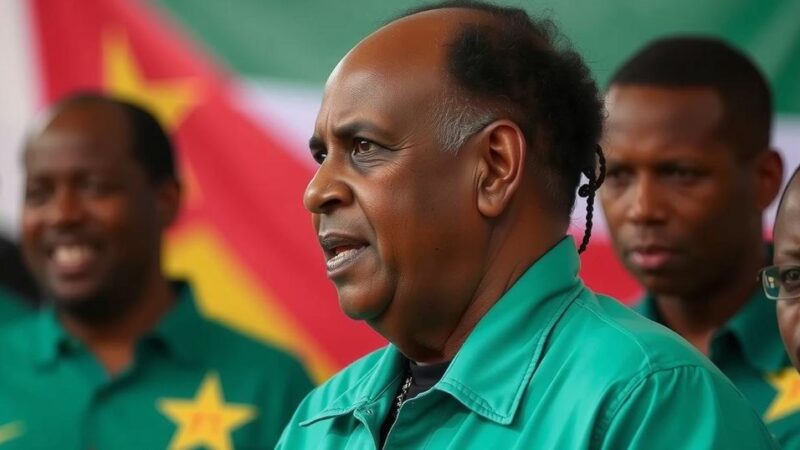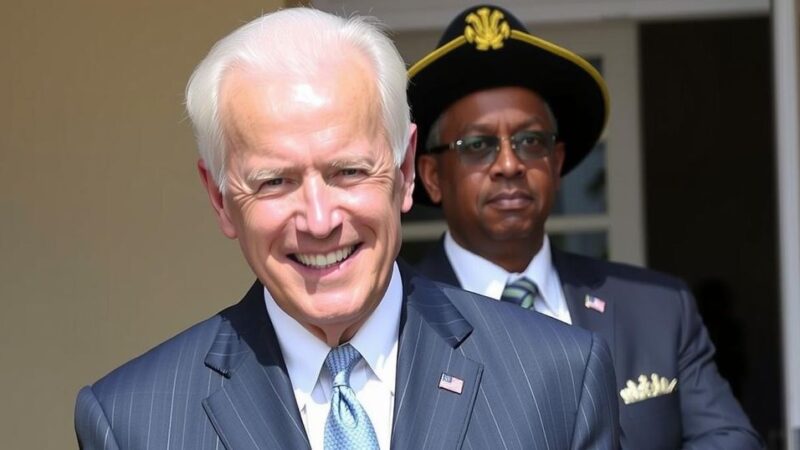Mozambicans are preparing for a pivotal presidential election on Wednesday to select a successor to President Filipe Nyusi. With over 17 million registered voters, the political scene is primarily dominated by the ruling Frelimo party, represented by David Chapo, while independent candidate Venacio Mondlane poses a significant challenge. The election comes amid a backdrop of ongoing violence from an insurgency and severe climate-related issues, prompting urgent calls for development and reform. Voting will take place over one day, with results expected within a few weeks.
Mozambique is bracing for a significant presidential election as citizens prepare to vote on Wednesday, determining the successor of President Filipe Nyusi, who has served two terms in office. Nearly 17 million voters are registered in this Southern African nation, which has a population of approximately 31 million, to elect not only a new president but also 250 members of parliament and provincial assemblies. The ruling party, the Front for the Liberation of Mozambique (Frelimo), is expected to maintain its grip on power, but there are at least four candidates vying for a shift in governance amid the backdrop of ongoing challenges, including an enduring jihadist insurgency in the northern region and vulnerability to extreme weather conditions along its extensive coastline. With over 1.3 million individuals displaced by the insurgency and many facing acute food shortages due to recent drought conditions, the electoral landscape is charged with urgency. Recent local elections were marred by accusations of fraud, resulting in significant unrest; however, this election cycle appears relatively peaceful in comparison. The Frelimo party has nominated David Chapo, a 47-year-old former governor from the southern province of Inhambane, known for its vibrant tourism industry. Chapo’s primary opponent will likely be 50-year-old Venacio Mondlane, an independent candidate and banker, who is campaigning under the slogan “Save Mozambique, this country’s ours.” Mondlane has garnered attention and large crowds, aided by the backing of Podemos, a party formed from Frelimo defectors. Other candidates include Lutero Simango from the Democratic Movement of Mozambique, which appeals to younger voters with a focus on job creation and addressing inequality, and Ossufo Momade, the representative for the Renamo party, which evolved from a rebel group into an opposition political entity. The election occurs against the backdrop of a violent insurgency linked to the Islamic State, which has terrorized northern communities since 2017. Although around 600,000 of the displaced have returned, many confront destruction in their hometowns. Furthermore, the candidates are under pressure to tackle development hindrances exacerbated by this conflict, including the suspension of a key gas project by TotalEnergies due to the violence. Compounding these issues, Mozambique suffers from high unemployment and food insecurity, intensified by severe droughts under the El Niño weather phenomenon. The current administration has faced criticism for corruption scandals, notably the “tuna bond” scandal, which resulted in significant financial malpractice that plunged the country into a crisis. As for the electoral process, voting will take place on a single day, with immediate counting of ballots followed by the release of preliminary results. Official results will be published by the National Election Commission after 15 days, with the possibility for parties to contest outcomes through the Constitutional Council.
The upcoming presidential election in Mozambique is crucial, as it will determine the leadership of a nation grappling with various socio-economic challenges, including a prolonged insurgency in the north and the repercussions of climate change. Established in 1975 following independence from Portugal, the Frelimo party has maintained political dominance, but emerging movements and independent candidates are looking to shift the status quo. The last local elections were marked by significant unrest due to allegations of fraud, impacting public trust.
In conclusion, the impending presidential election in Mozambique presents a critical juncture for the country. With the ruling Frelimo party seeking to continue its legacy under candidate David Chapo, the presence of formidable challengers like Venacio Mondlane signals a potential turning point in Mozambique’s political landscape. The election addresses pressing issues such as security, economic instability, and humanitarian crises, underscoring the electorate’s desire for change amid significant challenges.
Original Source: apnews.com

